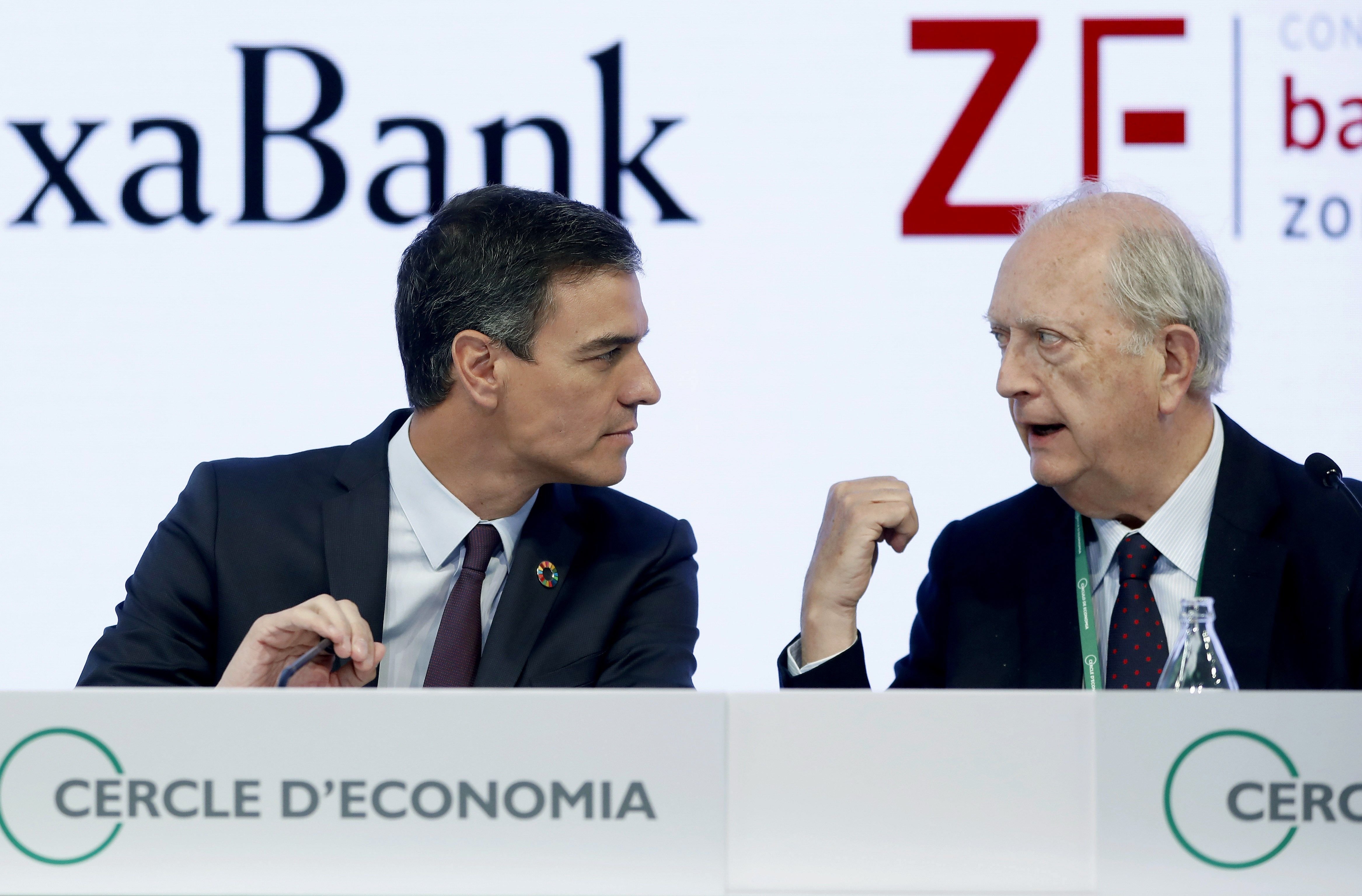Acting Spanish prime minister and leader of the PSOE party, Pedro Sánchez, touched down this Saturday at a key Catalan business gathering, the Cercle d'Economia meeting in Sitges, with his landing made smooth by the efforts made by the so-called "Upper Diagonal", the Barcelona entrepreneurial elite, to avoid asking him even a single question about the political crisis which Catalonia is immersed in. The acting PM made no explicit reference to the Catalan situation during his speech, and the president of the Cercle, Juan José Bruguera, didn't raise any questions about it either, which caused annoyance among the representatives of the financial and business world present at the Sitges hotel where the annual meeting is held.
Sánchez's speech was the most keenly-awaited moment in the Sitges conference, where for two days the Catalan political situation had been generating headlines.
On Thursday, Catalan president Quim Torra called on business leaders to take a stand in defence of democracy in the face of the state's repression and to back a referendum. The following day, Josep Sánchez Llibre, president of employers' association Foment del Treball Nacional, called on the Catalan government to abandon the path of unilateral action in order to help find a way out of the conflict, while Catalan vice-president Pere Aragonès urged the Spanish executive to return to the dialogue table which was proposed last December at the Pedralbes summit and which had also opened the door to negotiate a new financing regime for the Catalan government.
Introducing this Saturday's address, Bruguera spoke of the concern about the issue and urged the Spanish president to commit to dialogue and agreement to prevent the conflict from deepening. However, Sánchez ignored the business people's concerns. The acting Spanish premier made no any reference to the Catalan issue, beyond the occasional veiled warning that "walls and borders" cannot be raised in a "consolidated and exemplary democracy" like Spain's.
The disappointment was evident and the speech was received with no more than tepid applause. Those present had made no secret that they expected Sánchez to take advantage of the end of Spain's long double-election campaign to put forward proposals and take hold of the hand outstretched by the Catalan government the previous day.
But the last straw in the audience's bewilderment arrived when the president of the Cercle failed to include any queries about Catalonia in the subsequent questions period. He neither asked a question himself nor collected any on the subject from the public.
The annoyance became apparent in the aisles, with some of those present saying that there had been questions about Catalonia and they asserted that the Cercle d'Economia had "screened" them. "The questions were fixed," one entrepreneur complained, while a prominent representative of the Catalan business world labelled the Cercle's attitude as "cowardly."
Sánchez was greeted at the door of the conference hotel by the president of the Cercle and government minister Nadia Calviño. Those present ranged from political figures such as the Catalan Socialist leader Miquel Iceta, to representatives of the two media groups of Barcelona, Godó and Zeta, with new editor Javier Moll at the head; key figures in the financial world, such as Josep Oliu, the president of Banco Sabadell, Jaume Giró, general director of LaCaixa, and the CEO of Caixabank, Gonzalo Gortázar; among many others. When Sánchez entered the hall, he made a point of greeting Josep Sánchez Llibre, the employers' association leader who had previously called on the Catalan government to give up its unilateral path.
However, the groundwork laid by Sánchez Llibre's call was left without further elaboration, because, after giving a very generic speech and not receiving any questions on the issue, Sánchez left on the same comfortable cloud on which he had entered. And without giving any explanation about the response he intends to give to Catalonia.

